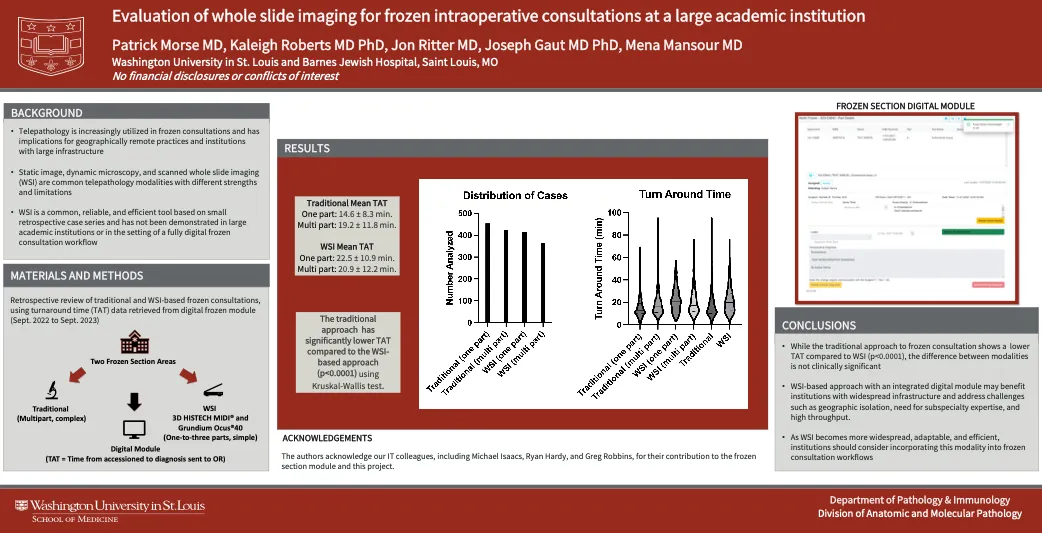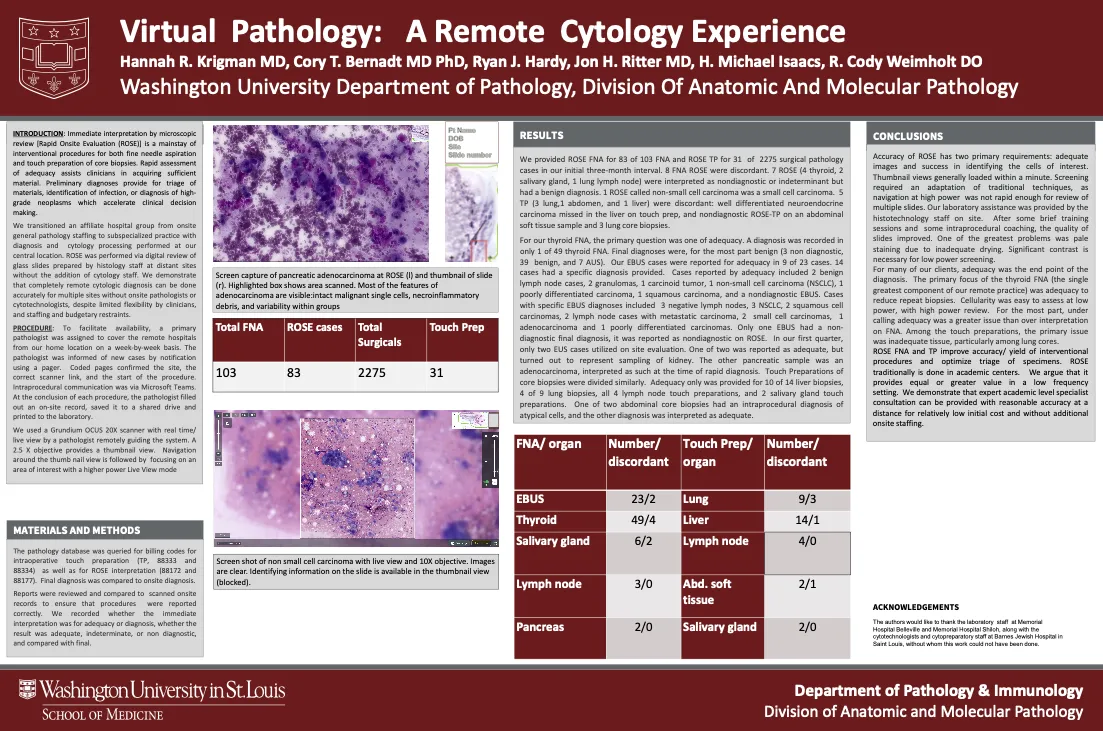
At the USCAP annual meeting in Baltimore, Ocus scanners featured in two research posters, demonstrating their significant role in advancing medical imaging and digital pathology.
This year, at the United States and Canadian Academy of Pathology (USCAP) annual meeting held in Baltimore in mid-March, Grundium continued its tradition of excellence as an exhibitor and marked its presence through notable mentions in research studies. In a significant acknowledgment of the capabilities of the Ocus scanners, two distinct posters featuring our technology were presented, each illuminating the innovative application of Ocus technology in medical imaging.
This poster, authored by Patrick Morse MD, Kaleigh Roberts MD PhD, Jon Ritter MD, Joseph Gaut MD PhD, and Mena Mansour MD, from Washington University in St. Louis and Barnes Jewish Hospital, Saint Louis, MO, focuses on the capabilities of Ocus scanners in supporting frozen intraoperative consultations. Specifically, the study conducts a retrospective review of traditional and WSI-based frozen consultations, analyzing turnaround time. The study advocates for incorporation of whole slide imaging into frozen consultation workflows, highlighting its potential to significantly improve diagnostic consultations across widespread healthcare infrastructures.

Authored by Hannah R. Krigman MD, Cory T. Bernadt MD PhD, Ryan J. Hardy, Jon H. Ritter MD, H. Michael Isaacs, and R. Cody Weimholt DO, from Washington University Department of Pathology, this poster explores the adaptability of Ocus scanners in enabling remote cytological diagnostics across geographically dispersed hospital sites. By integrating digital microscopy for real-time evaluations, the team demonstrates how centralized subspecialized practices can overcome challenges of staffing and budget constraints, delivering expert consultations remotely.

We extend our deepest gratitude to all the authors for their diligent work and for trusting in the capabilities of Ocus scanners to support their groundbreaking research. Their contributions are not only instrumental in advancing the field of pathology but also in demonstrating the practical and innovative applications of our technology in real-world settings. We immensely appreciate their efforts to share these findings in their posters at USCAP, allowing us to witness the impactful role that Ocus scanners can play in enhancing medical diagnostics and patient care. Our warmest appreciation goes out to each author for their partnership and for eloquently presenting their studies, which help highlight the strengths of our scanners across various aspects of pathology.
These posters are the latest additions to a growing compendium of scientific articles and studies that have utilized Ocus scanners in their research endeavors. Each contribution showcases our scanners’ versatility and reliability and underscores our commitment to supporting the scientific community in pushing the boundaries of digital pathology. For those interested in exploring how Ocus scanners are being integrated into various research settings and the impacts of these studies, we invite you to view the complete list of publications and research articles. You can access this comprehensive archive by visiting the Scientific Articles section of our site. This resource is continually updated to reflect our technology’s latest advancements and applications in the field.

